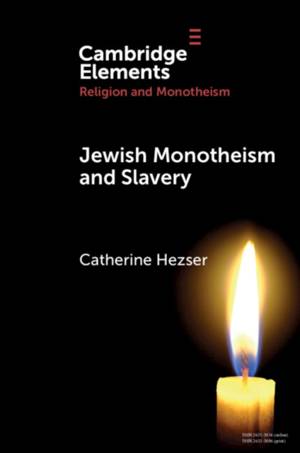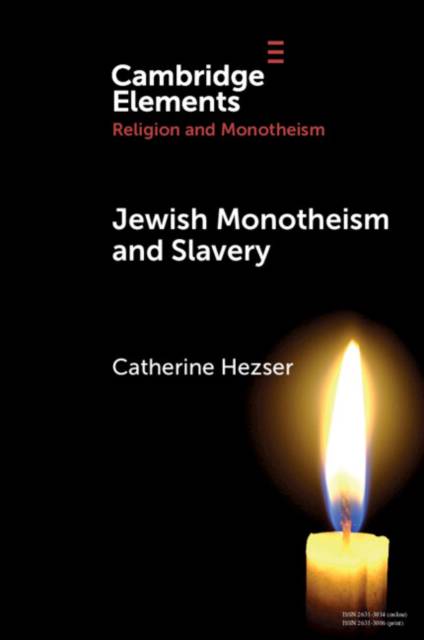
- Afhalen na 1 uur in een winkel met voorraad
- Gratis thuislevering in België vanaf € 30
- Ruim aanbod met 7 miljoen producten
- Afhalen na 1 uur in een winkel met voorraad
- Gratis thuislevering in België vanaf € 30
- Ruim aanbod met 7 miljoen producten
Zoeken
Omschrijving
Biblical monotheism imagines God as a slave master who owns and has total control over humans as his slaves, who are expected to show obedience to him. The theological use of slavery metaphors has a limited value, however, and is deeply problematic from the perspective of real-life slave practices. Ancient authors already supplemented the metaphor of God as a slave master with other images and emphasized God's difference from human slave owners. Ancient and modern experiences of and attitudes toward slavery determined the understanding and applicability of the slavery metaphors. This Element examines the use of slavery metaphors in ancient Judaism and Christianity in the context of the social reality of slavery, modern abolitionism, and historical-critical approaches to the ancient texts.
Specificaties
Betrokkenen
- Auteur(s):
- Uitgeverij:
Inhoud
- Aantal bladzijden:
- 72
- Taal:
- Engels
- Reeks:
Eigenschappen
- Productcode (EAN):
- 9781009260503
- Verschijningsdatum:
- 14/03/2024
- Uitvoering:
- Paperback
- Formaat:
- Trade paperback (VS)
- Afmetingen:
- 152 mm x 229 mm
- Gewicht:
- 108 g

Alleen bij Standaard Boekhandel
+ 66 punten op je klantenkaart van Standaard Boekhandel
Beoordelingen
We publiceren alleen reviews die voldoen aan de voorwaarden voor reviews. Bekijk onze voorwaarden voor reviews.







